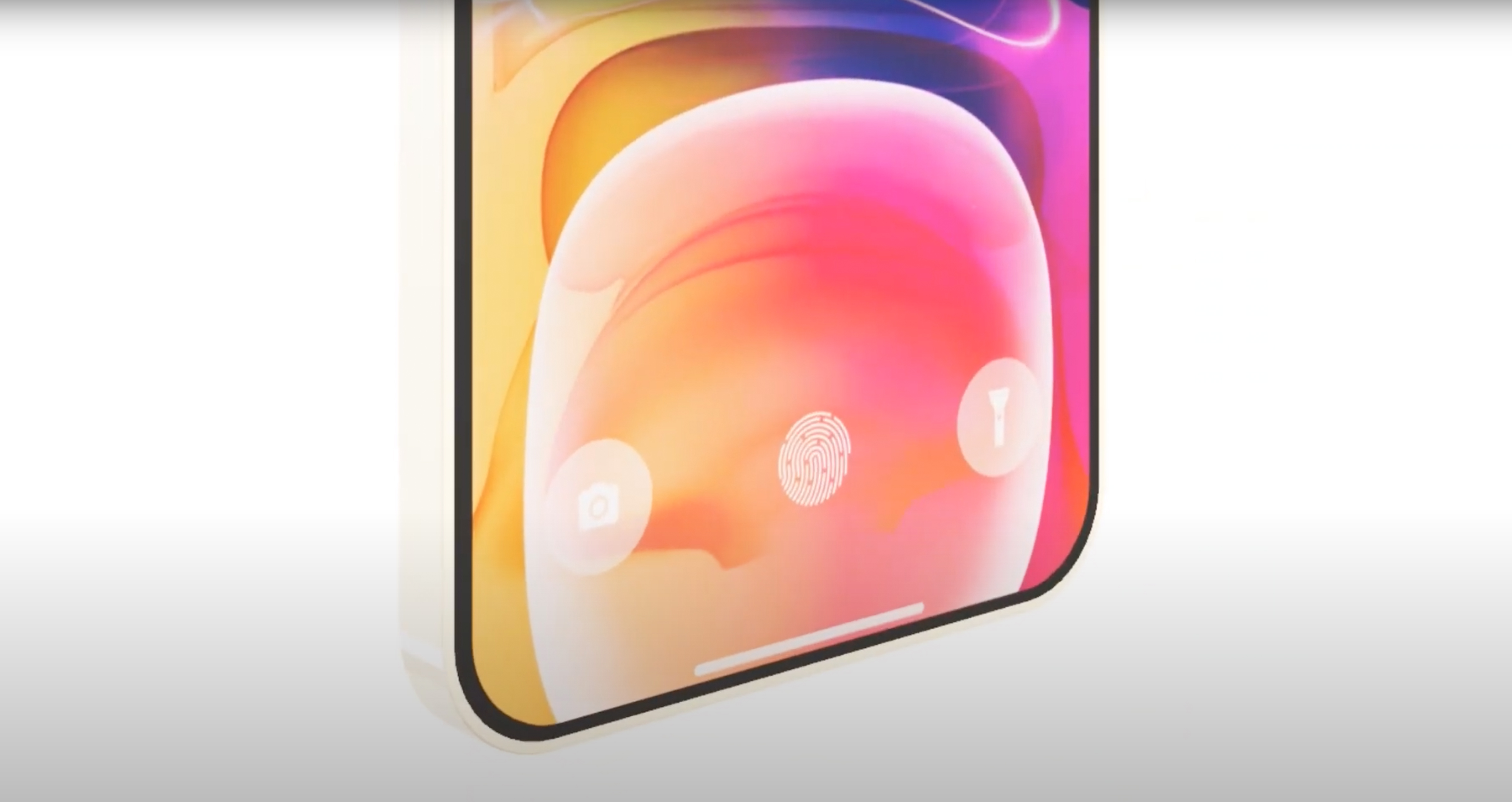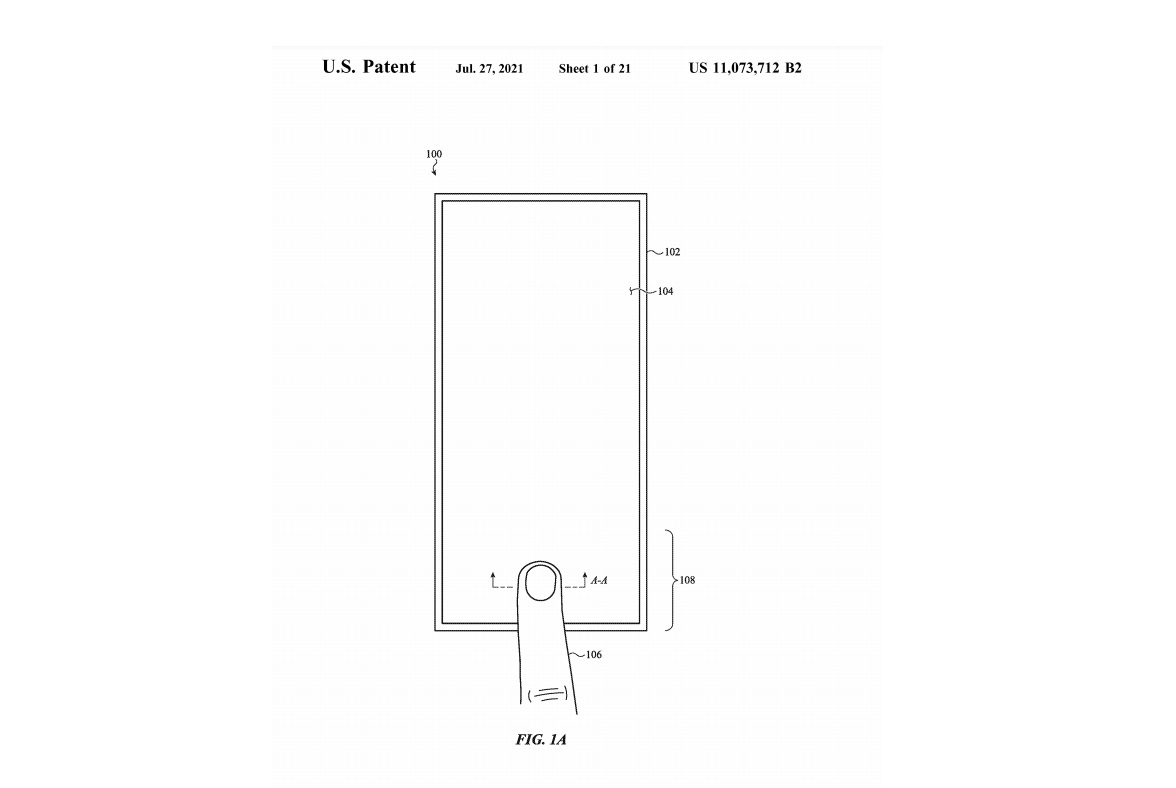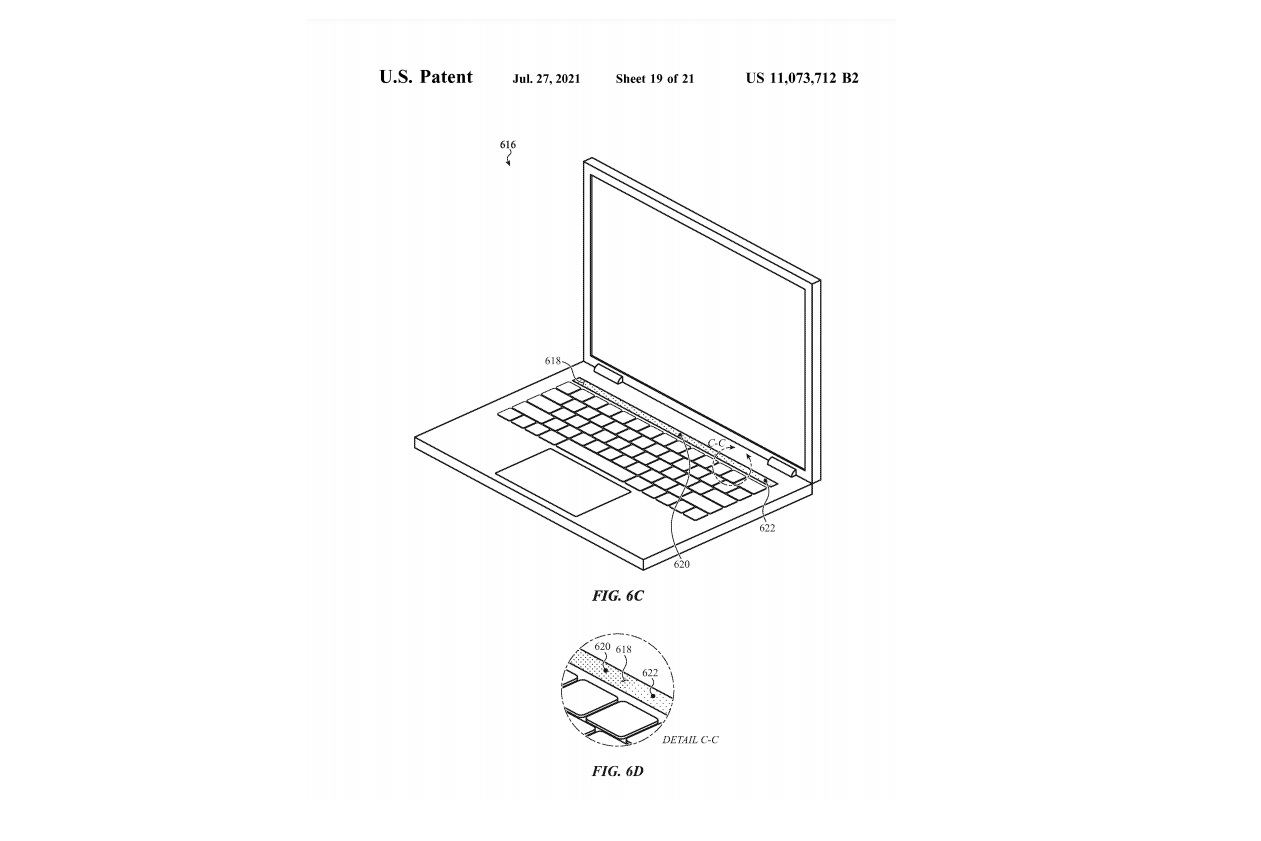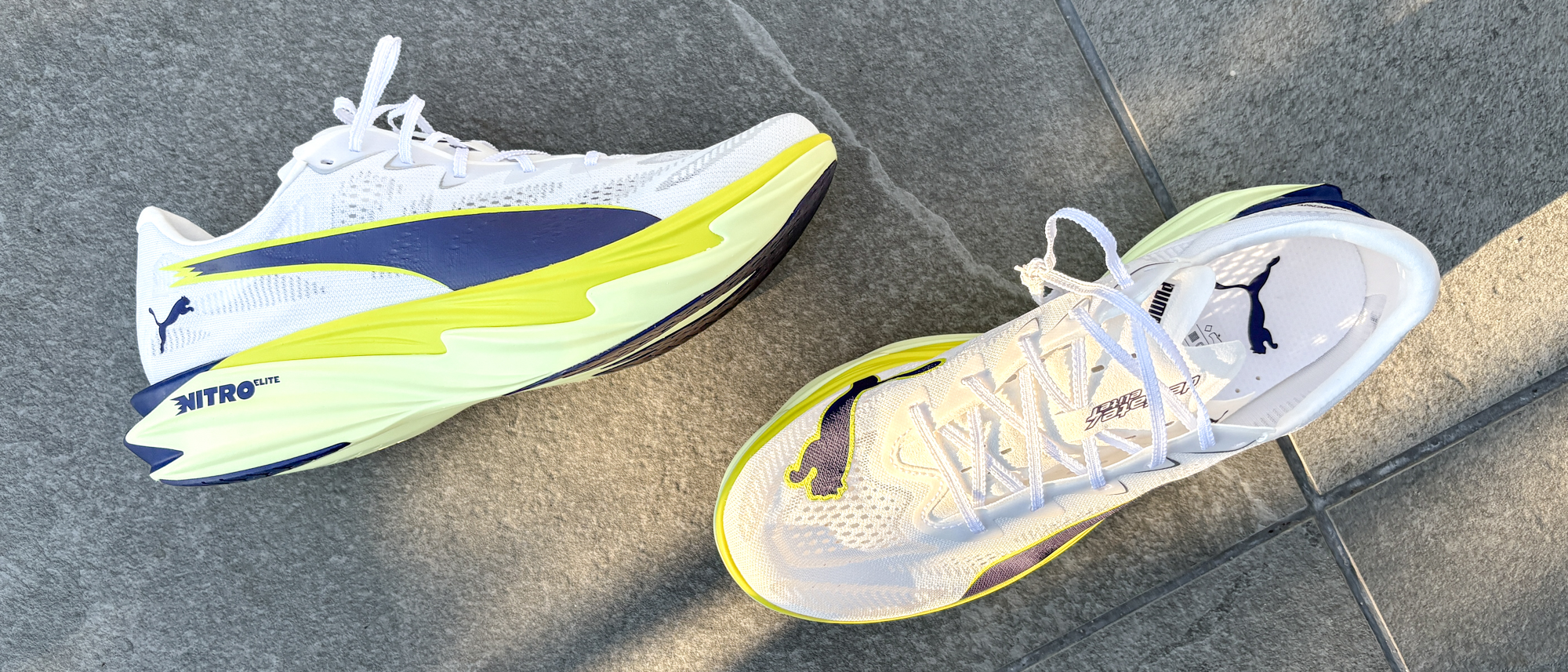This Apple patent has me much less excited about the iPhone 13
Apple under-display fingerprint patent could be good news for Touch ID in future iPhones

Update: Apple's next big patent application suggests that future iPhone cases will do a lot more than just protect your phone
There have been multiple reports that Apple has been working on an under-display take on Touch ID for future iPhones — likely the iPhone 14. And now this rumor has even more weight, thanks to a new patent Apple has been granted for integrating biometric authentication into iPhones and MacBooks.
This isn't the first time Apple has been granted patents for under-display biometric tech, but this newly granted patent pertains to both phones and laptops. As is the way with patents. neither the iPhone or MacBook were specifically mentioned, but we can assume Apple has those products in mind.
- Samsung Galaxy S21 FE could still arrive this year
- watchOS 8 — this upgrade is a game changer for my Apple Watch
- Plus: AMD’s next Navi graphics card could hit back at Nvidia RTX 30-series
The jury is still out on whether the next iPhone, thought to be the iPhone 13, or the iPhone 14 will be the first to feature an under-display version of Touch ID. Currently the latest rumors have the iPhone 14 tipped to get such biometric tech with the iPhone 13 left to use Face ID, albeit in a smaller display notch.
While Android phones have had under-display finger sensors for some time, Apple’s more recent iPhones have relied on either a scanner built into the Home button, as seen with the iPhone SE, or Face ID on the likes of the iPhone 12. However, as secure as Face ID might be, it doesn't work well with face masks that have understandably become prolific with the current coronavirus pandemic.
Plus, the CDC just changed it guidance on mask wearing, and is now recommending that even vaccinated people use a mask indoors in those areas with "substantial" and "high" transmission of Covid-19.

So a reimagined take on Touch ID that embeds the fingerprint scanning tech under future iPhone displays would certainly be welcome. How useful this feature would be in 2022 is unclear. But an alternative to Face ID would give iPhone fans more choice with how they authenticate themselves.
This could be one compelling reason to hold off getting the iPhone 13 when it makes its debut, supposedly this September. The early iPhone 14 rumors also point towards a potential titanium alloy design, a sharper 48MP main camera, as well as a periscope zoom function; these are further reasons to temper your expectations for the iPhone 13.
Get instant access to breaking news, the hottest reviews, great deals and helpful tips.
Comparatively, the iPhone 13 has been tipped to be more of an evolution than major overhaul of the iPhone 12 range. The iPhone 13 is tipped to feature a faster and more efficient A15 Bionic chip, camera upgrades like an astrophotography mode, better 5G and a smaller notch. The iPhone 13 Pro models seem more excited based on the rumors, as they're expected to feature always-on displays with 120Hz refresh rates along with improved ultra-wide cameras.
MacBook Pro Touch Bar with Touch ID?

One of the more interesting elements of this new patent is that it hints at the Touch Bar on future MacBook Pros potentially getting Touch ID embedded into them.
We have heard rumors that the divisive Touch Bar might be scrapped for the alleged MacBook Pro 2021, which is set to come in 14-inch and 16-inch modes and sport the M1X chip; an upgraded and performance-centric take on the Apple M1 chip.
But this patent would suggest that may not be the case, or at least some models of next-generation MacBook Pro will keep the Touch Bar. However, the current MacBook Pros use a Touch ID sensor on the right hand side of the Touch Bar. So it’s tricky to see how putting such a sensor under the Touch Bar would make a noticeable difference.
We’d much rather some form of Face ID was integrated into future MacBooks, which is a distinct possibility given a new rumor has next-gen iMacs tipped to get Face ID. Just don’t expect them any time soon.
While a lot of the above is logical speculation based on a new patent, it’s with noting that some patents don’t lead to new features or products. However, it’s still a positive sign that we could Touch ID finally come back to the iPhone.

Roland Moore-Colyer a Managing Editor at Tom’s Guide with a focus on news, features and opinion articles. He often writes about gaming, phones, laptops and other bits of hardware; he’s also got an interest in cars. When not at his desk Roland can be found wandering around London, often with a look of curiosity on his face.
 Club Benefits
Club Benefits





